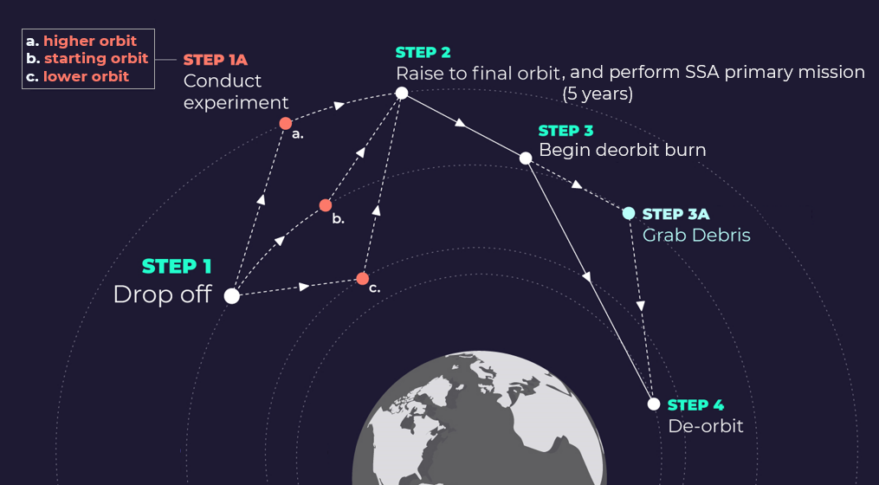by Jason Rainbow — August 25, 2022

TAMPA, Fla. — California startup Turion Space said Aug. 24 it has secured U.S. regulatory approval to sell space situational awareness (SSA) services from its first satellite next year.
SpaceX is slated to fly the venture’s Droid.001 satellite May 15 on a Falcon 9 rideshare mission, Turion Space CEO Ryan Westerdahl said in an interview.
Lithuania-based NanoAvionics built the bus for the satellite, which will provide imagery for Australian in-orbit inspection startup HEO Robotics, Turion Space’s first customer.
Droid.001’s primary mission, however, is to test imagery capabilities that Westerdahl declined to specify for an SSA business he sees as a stepping stone toward more direct in-orbit services.
After deploying three to four more SSA-focused Droids by around mid-2024, he said the startup plans to test a vision system for autonomous rendezvous operations with one of its spacecraft already in low Earth orbit.
“By 2025, we want to do our first docking and de-orbit demonstration,” he said.
Westerdahl ultimately envisions a constellation of Droids that can be tasked to provide services as needed. When that mission is over, they would return to their “home orbit” to track objects in space until they are called upon again.
“We’re an early-stage startup and we don’t necessarily know how big our constellation is going to be yet,” he said.
“All I can tell you with certainty for now is we’re going to build as many as we can, as fast as we can, without spending all our money and without going bankrupt.”
Turion Space has raised $7.5 million in venture capital, which he said covers its first two satellites.
The startup plans to deploy its second satellite in the fourth quarter of 2023, although it has not yet selected a launch provider.
Earlier this year, Turion Space secured four contracts worth a combined $1 million from the U.S. Space Force’s Orbital Prime program, which will support the development of its in-orbit logistics capabilities.
Orbital Prime launched last year to focus on emerging in-orbit servicing, assembly and manufacturing capabilities.
Westerdahl said the startup is using funds raised from government contracts for research and development on the logistics side of its business, as well as finding ways to expand its SSA capabilities.
Money raised from venture capital investors is supporting an SSA-focused commercial business, which would use early satellites that are not going to be focused on space logistics.
“Although we think in-space logistics is a market primed for takeoff, we are prioritizing moving fast and deploying revenue generating assets early to maximize learning and market traction,” he said
Turion Space, which employs 17 full time engineers, is one of a rising number of early-stage companies that are developing space-based solutions to improve SSA.
FROM: https://spacenews.com/
